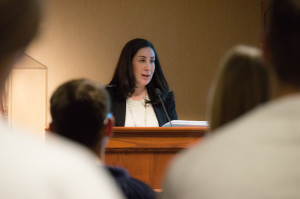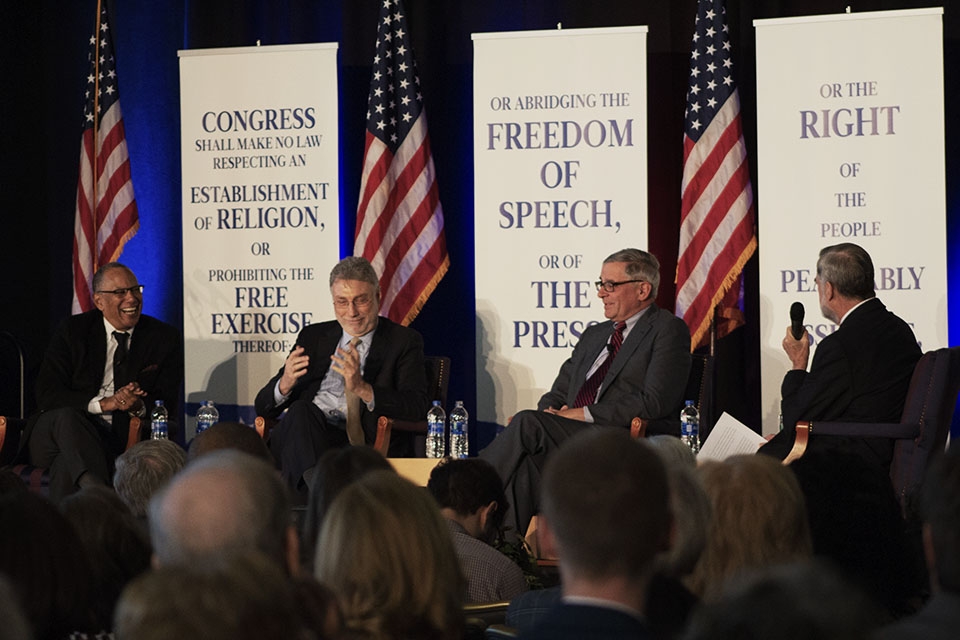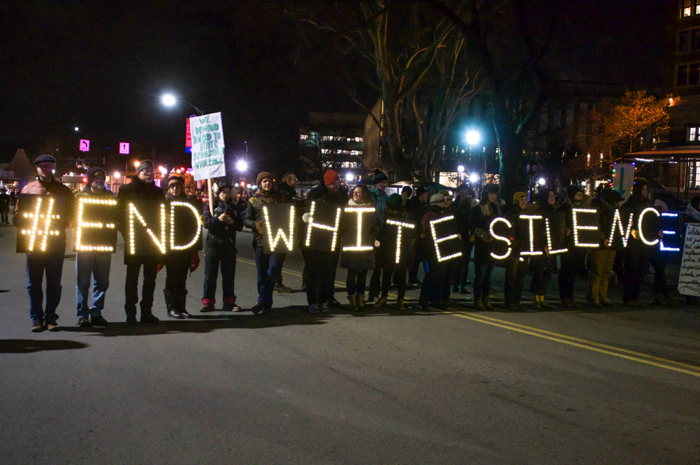
Pittsburgh resident and Syrian Christian Mais Haddad speaks to a group in Duquesne’s Africa Room on Jan. 19 about the ongoing refugee crisis.
By Casey Chafin | The Duquesne Duke
A Pittsburgh resident from Syria recently spoke at a Duquesne event to address U.S. misconceptions about the Syrian refugee crisis and to criticize American presidential candidates for politicizing a humanitarian issue.
Mais Haddad, a Syrian Christian, moved to the U.S. three years ago, and now works as a financial consultant in Pittsburgh. She was the speaker at a lecture hosted by Duquesne’s Consortium for Christian-Muslim Dialogue in the Africa Room Tuesday afternoon.
“In Europe, as in the U.S., their main mission when dealing with the crisis is to find the balance between humanitarian and security issues,” Haddad said. “This resulted in a complete failure, and neither was achieved.”
She said despite what many people seem to think, most of the refugees do not even want to come to the U.S. or any other country, and are not looking for money but simply want to find safety.
“Here in the U.S., I have a feeling that the presidential candidates are using this subject to raise their polls, rather than addressing the real problems,” she said.
Aside from the safety issue, Haddad said there is a serious problem in some of the refugee camps with children being sold into marriage at a young age.
“It is quite serious, especially in Jordan and Lebanon,” she said. “Girls under 18, probably 13 or 14 are marrying wealthy men. The marriages last for one week … and then the girl would be divorced.”
She said the families do this because they cannot afford to have a large family anymore, and also because they believe it will bring their daughters protection from harm. She said boys in the camps are often recruited to become child soldiers.
Haddad said the Christian population in Syria is slowly becoming non-existent since the terrorist group ISIS began violently expanding its influence in the country.
For example, in the Syrian city of Ma’loula, the number of Christian families has fallen from 12,000 to only 150, according to Haddad.
Marinus Iwuchukwu, chair of the Consortium, said he invited Haddad to speak to “give a human face to this crisis.”
“We may not have any influence with the policies and political decisions, but we can support the needs of people,” Iwuchukwu said.
Iwuchukwu said the best way for members of the Duquesne community to help the situation is by donating money to assist with relief efforts.
The Consortium is hosting a Muslim speaker to discuss the Syrian crisis on Feb. 16.



